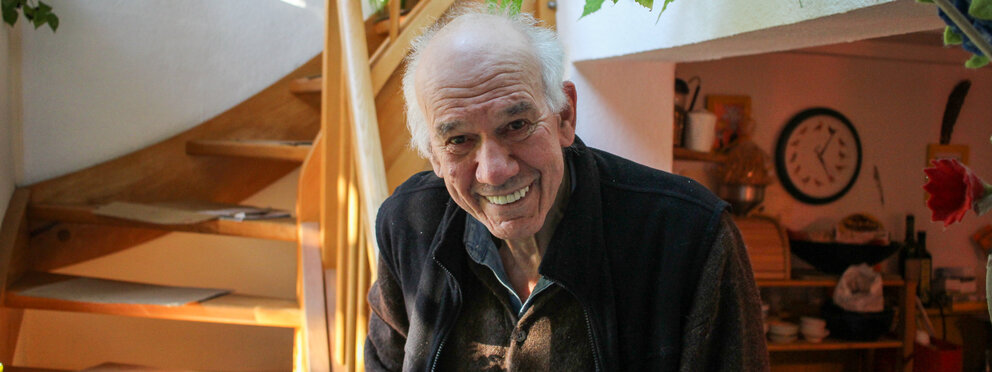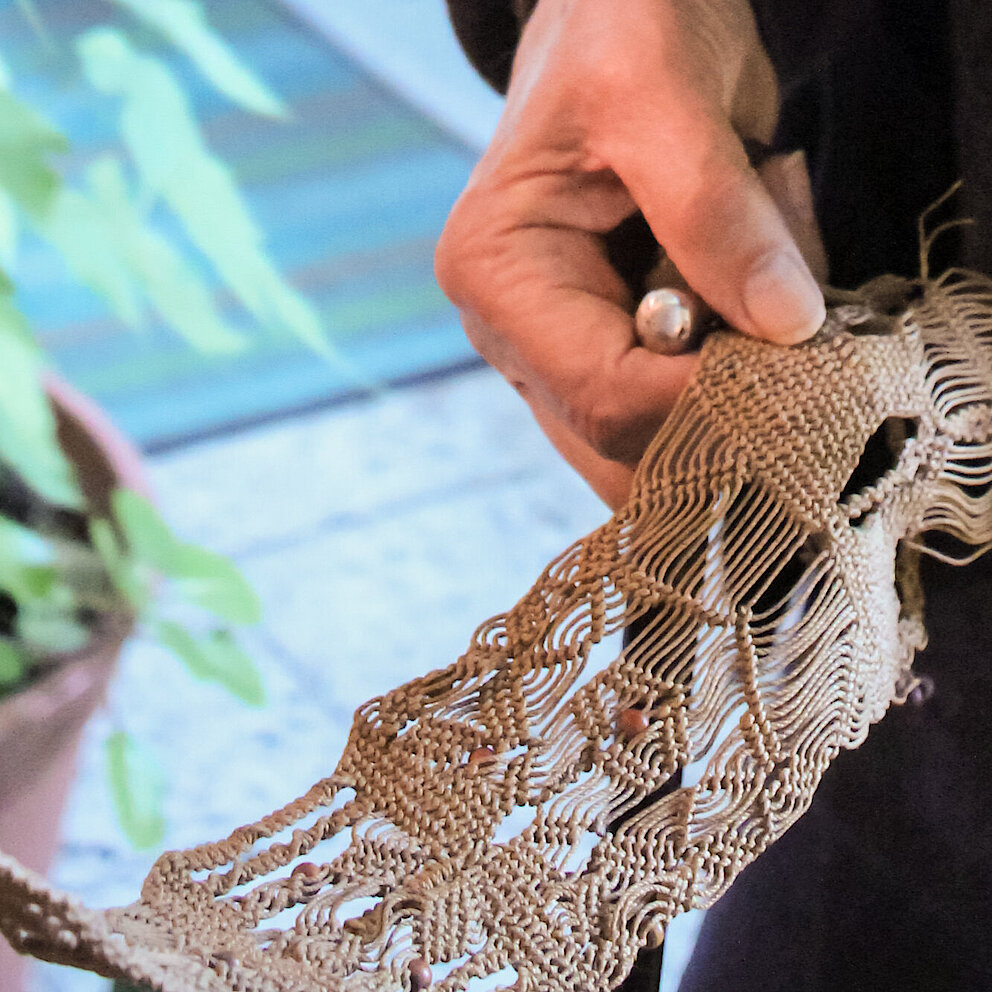
Peter-Paul Klinger
About Peter-Paul Klinger
Peter-Paul Klinger was born in Hungary in 1938 to wealthy Jewish parents, but was not brought up Jewish. When the Wehrmacht occupied the country in 1944, the situation also came to a head for the Hungarian Jews. To save him from the threat of deportation, Peter's parents devise a plan: under the cook's care, he is to assume the identity of their nephew Géza and receive his birth certificate. This ultimately saves Peter's life, as he remains undetected - partly because they are constantly changing locations. However, he only realised long after the war just how much danger his life was in at the time.
Peter-Paul Klinger emigrated from Hungary in 1956 and initially lived in Austria before deciding to move to Germany in the 1970s. Since 2008, the pensioner has lived in Witzenhausen in Hesse, which he calls home.
"I would like to live in a country, at some point, where it is normal to wear or not wear a kippah. And no one gets upset when you meet a Jew, but says 'Guten Tag' or 'Schalom' and goes their way."
A picture to live on
After the war, Peter-Paul Klinger was unable to find a place where he felt at home. He frequently changed his place of residence and travelled a lot. One souvenir is the macramé wall jewellery that he wove himself on a trip to India. He made many more on further journeys and sold them. For us, this wall decoration symbolises Mr Klinger's restlessness in his search for a home. He lived in many places, but in 2008 he found his adopted home in Witzenhausen.

Our encounter
We visited Mr Klinger for an interview in September 2018. On the way to his house, we walked through the small, idyllic old town of Witzenhausen, through alleyways with cobblestones. Mr Klinger lives in a half-timbered house that is painted a sunny yellow and has door frames so low that we had to duck our heads as we walked through.
Mr Klinger proudly showed us his home and his garden, which was still wonderfully green in September. Mr Klinger had chosen his kitchen for the interview. We sat together at his kitchen table, drank tea and were quizzed by him: "What do you do for a living? What did you study? Why do you interview Holocaust survivors? What do you do with children and young people?" Mr Klinger wanted to know everything in detail. At the beginning, he seemed a little reserved and cautious, wondering what would happen today and what questions he would be asked. Before we started the interview, we talked about the current political situation, a topic that is very important to Peter-Paul Klinger and one that is close to his heart.
The interview began with a short historical excursion into Hungarian history. Mr Klinger wanted to give us as much knowledge as possible. During the interview, he kept interrupting himself and thinking about what he was saying. Again and again he reflected on his actions, his decisions and his entire life. As a teenager, he emigrated to Austria and, looking back, considers himself to have been deeply insecure during this time. This, he says, is reflected in his entire life: He moved again and again and lived in all kinds of countries. We experienced Mr Klinger as a clever, open-minded and incredibly friendly person. He seems to approach everything he encounters with boundless curiosity.
